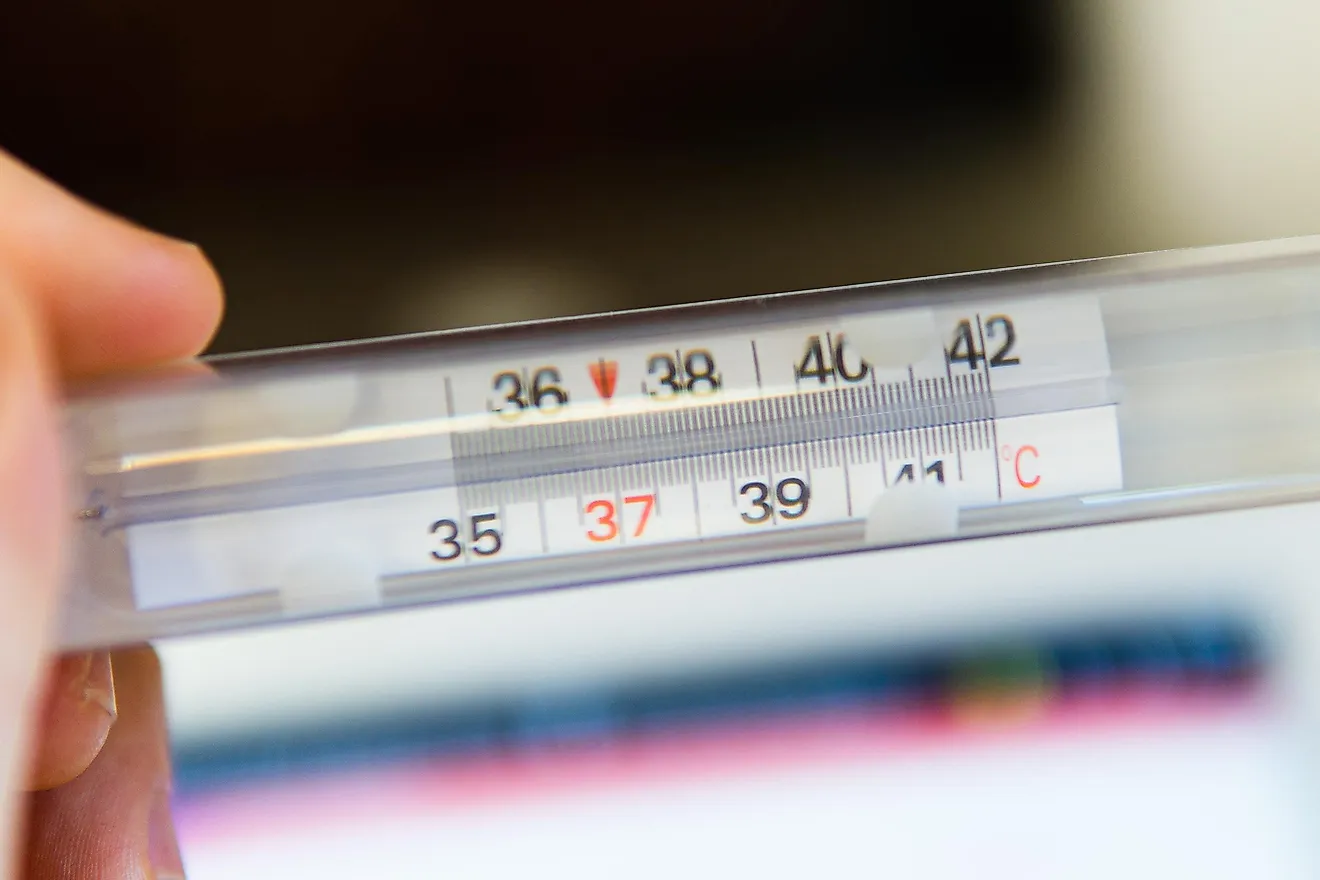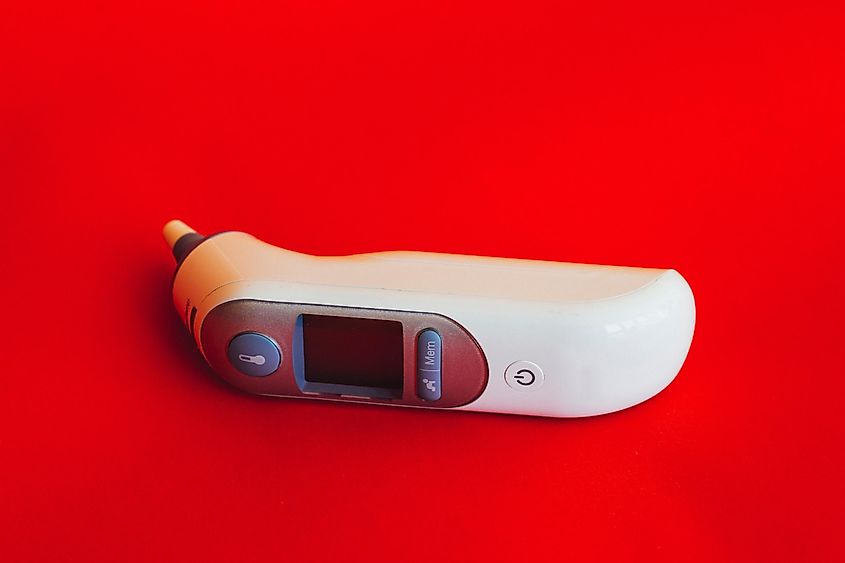Why Is Mercury Used In Thermometers?

- Mercury thermometers are being phased out in the US.
- Daniel Gabriel Fahrenheit used alcohol in thermometers in the 1700s.
- Mercury has a lower coefficient of expansion, compared with alcohol.
Thermometers are a useful thing to have in your home. You can use one to detect a fever, and people also often use them in cooking in order to determine if a roast is cooked to the proper temperature. You can use a thermometer to check if sugar is being melted or burned and if hot oil is ready for frying foods.
Mercury thermometers will not be seen for much longer in people’s homes. Your grandparents may have one in their medicine cabinet, or even your parents, but newly stocked bathrooms are much more likely to have a digital thermometer on hand. Mercury thermometers are being phased out as the metal is toxic if the thermometer breaks. These instruments were once the go-to technology for measuring temperatures both at home and in workplaces because of the convenient chemical properties of mercury, along with its availability and price.
A High Coefficient of Expansion, (but Not Too High)

Before mercury came along in thermometers, alcohol was discovered as a substance that was great for measuring temperatures. Alcohol expands rapidly when it heats up. Heat makes atoms move about more rapidly, thus increasing the kinetic energy in a substance. Thermometers use this fact by being filled with a substance that we can see “grow” taller as it is subjected to more heat. The substance expands and moves up the thermometer.
Alcohol was discovered as being great for this back in the 1700s. Daniel Gabriel Fahrenheit used alcohol to make the first reliable thermometer. The only trouble with alcohol as a measuring instrument, however, is that it reacts to changes in temperature too quickly.
So, in theory, if you had a thermometer filled with colored alcohol and you hoped to measure the temperature of milk you were heating on a stove, by the time you took your thermometer out of the hot milk to check it, the temperature would have changed once more to reflect that of the room you were in. The alcohol would have cooled down too fast.
Because of alcohol’s high coefficient of expansion, mercury was chosen as a better candidate for filling thermometers. Mercury also has a high coefficient of expansion, but it is not too high. Mercury’s is about six times less that of alcohol. This means you can subject the mercury in a thermometer to heat and it will react. You can then look at your thermometer, and you will have enough time to read the temperature it displays before the mercury goes back down again.
The Only Liquid Metal and a High Boiling Point
Other factors that make mercury attractive for measuring temperature is the fact that it has a very high boiling point. Mercury boils at 674ᵒF (78.37ᵒC). Alcohol has a much lower boiling point, and it would not even be able to measure the temperature of boiling water. (Although it can measure temperatures much lower than mercury can).
In addition, mercury is the only metal that is a liquid at room temperature, making it an attractive candidate. It is also cheap to acquire and very accurate at measuring high temperatures. Lastly, you do not need an external power source like a battery or electricity to run a mercury thermometer. Mercury powers itself, making it an attractive substance.
Phased Out

Although mercury thermometers pose many benefits to users, they also have their drawbacks. Mercury is a neurotoxin, and if you are exposed to it outside of its typical glass thermometer tube, it can cause you to go deaf, experience tremors, memory loss, and partial blindness, among other awful permanent side effects. Due to these facts, it is also obviously a substance that is difficult to clean up if ti spills. Many countries are now moving to phase out the use of mercury thermometers. They will be replaced with newer technology such as digital devices, but they will be missed.











